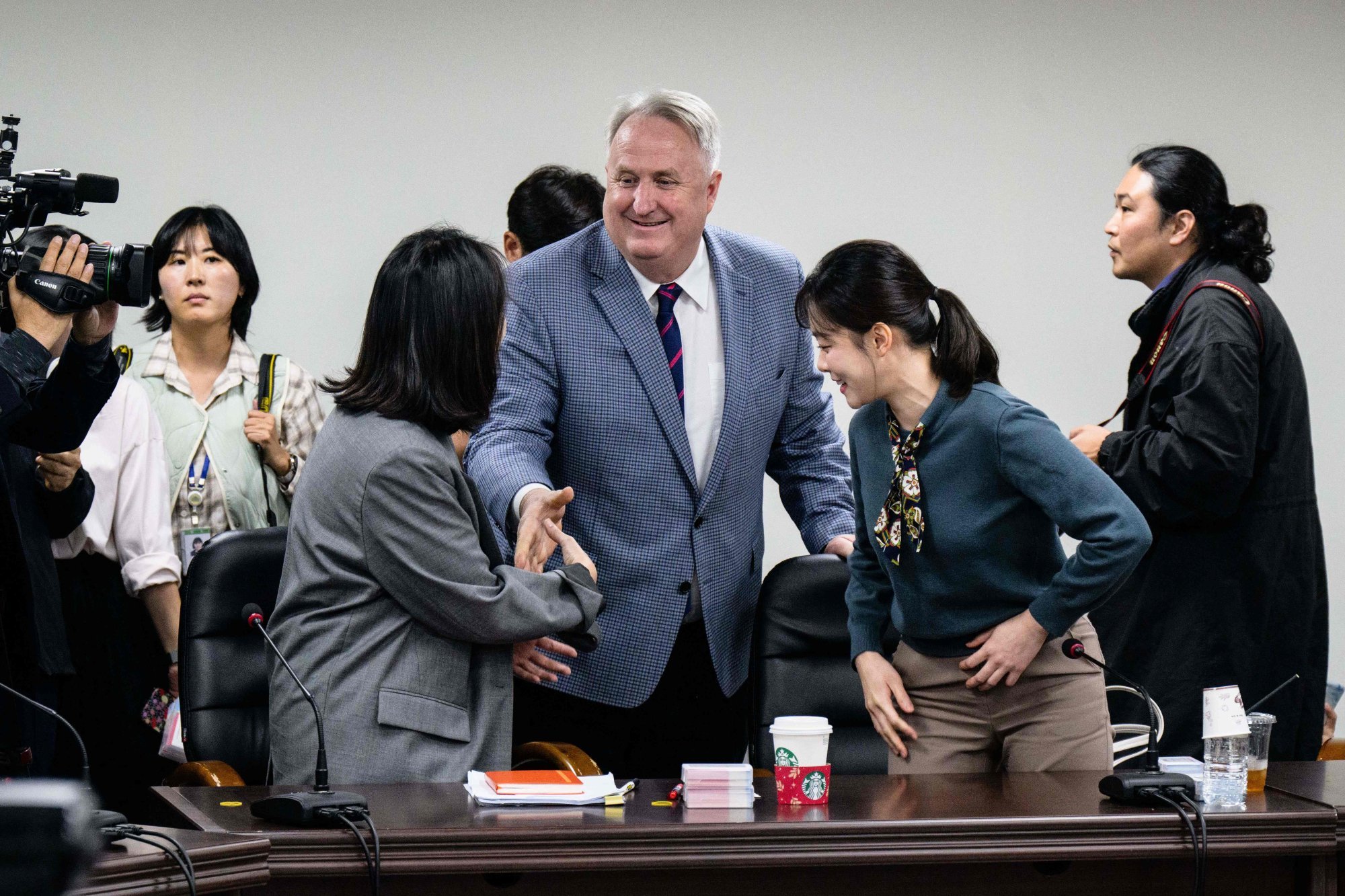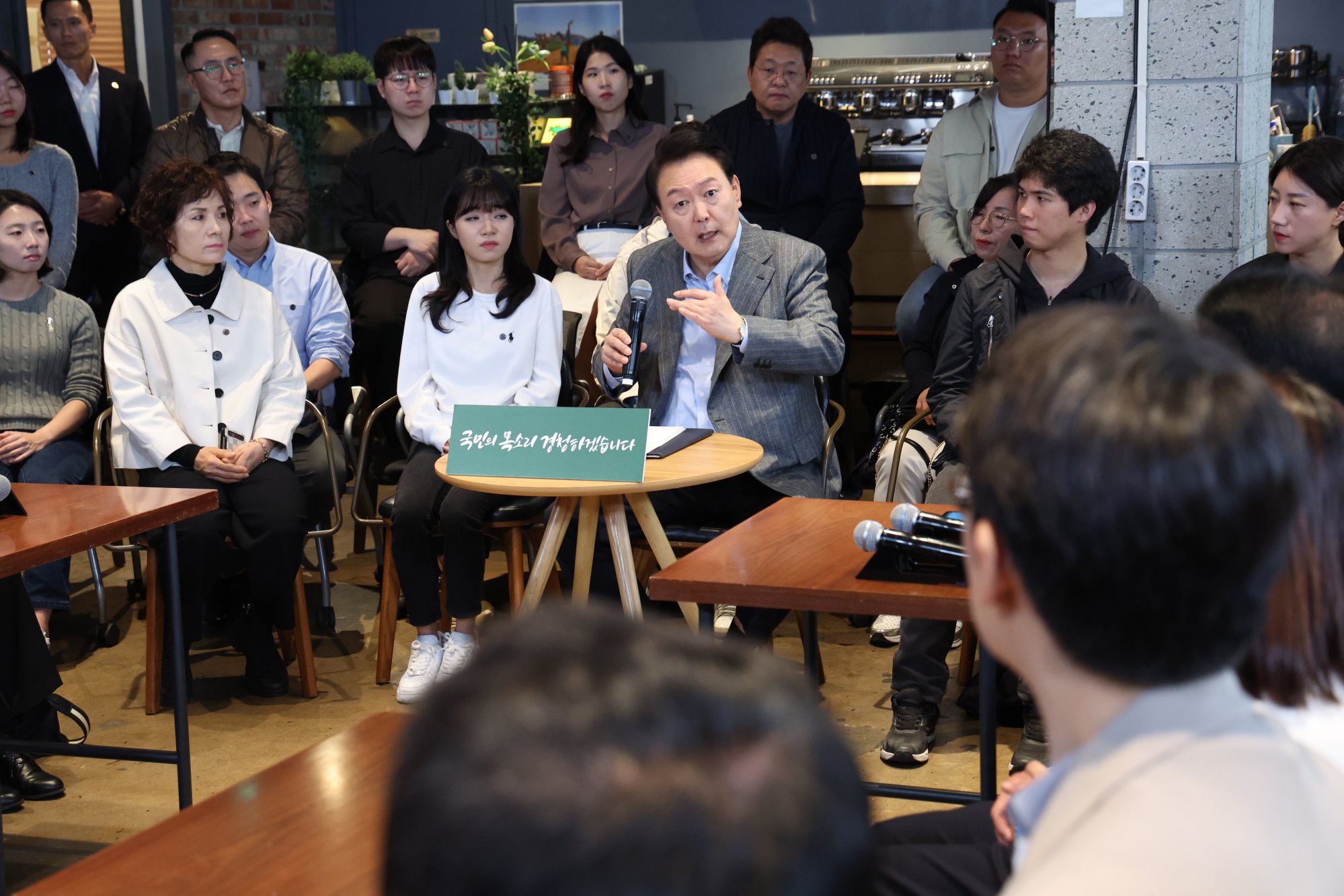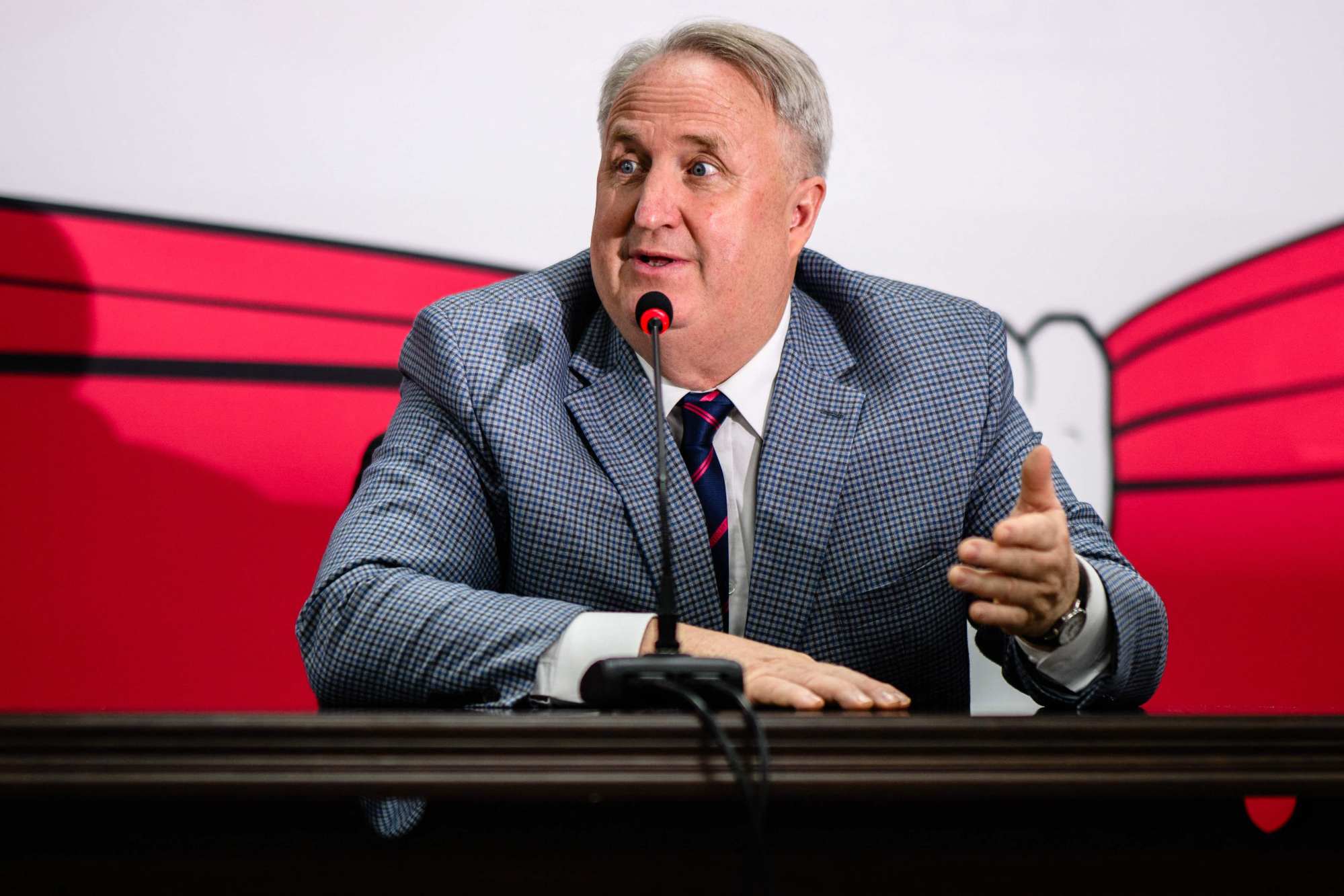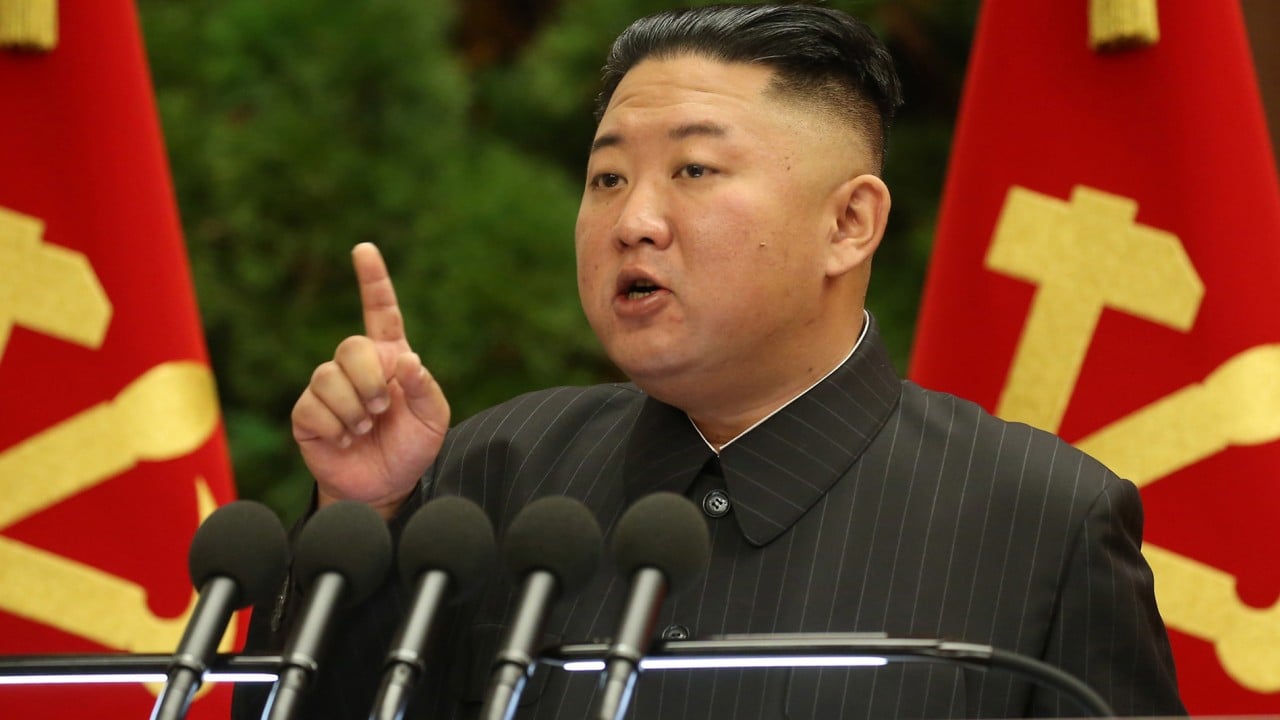In South Korea, ‘blue-eyed’ politician tapped to help Yoon set ‘new direction’ for ruling party
[ad_1]
Born in rural Jeolla province, Linton is nicknamed the “blue-eyed Korean” and speaks the language perfectly, albeit with a strong regional accent.
He is well-known domestically thanks to his family’s deep-rooted ties to the country, going back four generations.
His great-grandfather first came to Korea as a missionary in 1895, he said, and the family never left – his grandmother and father were also born in the country.

“I was born in 1959 after the Korean war,” said Linton, whose Korean name is Ihn Yohan. “Basically I grew up in the village. So I’m a country boy from Jeollado with a different-looking face.”
Apart from a few years stateside, including for his medical residency in New York, Linton has spent his entire life in South Korea, graduating from Seoul’s prestigious Yonsei University and then leading the institution’s International Health Care Centre for decades.
But now he’s taken on a new challenge: he’s been put in charge of the ruling People Power Party’s “Innovation Committee”, tasked with revamping the staid institution and making the party more competitive by appealing to younger voters.
Moreover, South Korean politics is notoriously adversarial, with many former presidents being prosecuted and jailed for corruption after leaving power – and later pardoned.

Linton is confident he can be a force for change. “I have received so much from this country … Now it’s my turn to give back,” he said.
His own appointment “shows you how much Korea changed”, he said.
“We will chart a new direction and make it more pluralistic,” he said.
Stories about the Linton family have long captivated the South Korean public for their century-long contributions and love for the country.
Linton’s grandfather, William Linton, tried to raise international awareness of the country’s independence movement against Japan’s colonial rule and was later awarded the order of merit.
His father, Hugh Linton, was a Korean war veteran, serving as a captain in the US Navy.
South Korea’s Yoon under fire for trying to play down anti-Japanese moves
South Korea’s Yoon under fire for trying to play down anti-Japanese moves
Linton himself acted as an interpreter for foreign press during a civilian uprising for democracy in the city of Gwangju in 1980, which was brutally put down by then military strongman Chun Doo-hwan, with some 200 killed, according to official estimates.
He then became the first foreigner to pass South Korea’s medical licence exam in 1987.
“I am originally American, but Korean. And I have a lot of love from my hometown in Korea and everything in my life is invested in Korea,” the 63-year-old, who was awarded Korean citizenship in 2012 in recognition of his contributions to the country.
After his father was badly injured in a car accident and died while being transported to a hospital in 1984, he has worked tirelessly to bring better ambulances to Korea, designing a much-used domestic model.
His medical work also expanded to North Korea, where he tried to “help eradicate tuberculosis” in the reclusive nation, fondly recalling working with “very knowledgeable” North Korean doctors.
His work in the nuclear-armed country as a doctor has bolstered his beliefs that geopolitics should not be allowed to trump humanitarian need.
“There should be much less sanctions which stop humanitarian aid. I think that is a mistake,” he said.

Linton first dabbled in politics in 2013 when he worked on the transition committee for then-president elect Park Geun-hye. But he says the stakes are higher this time, calling his new job “the most important thing in my whole life”.
He is a staunch defender of President Yoon, saying the country’s top leader had been misjudged by much of the public. “He’s not a [professional] politician,” he said, adding there was “poor understanding how hard he is working”.
After his two-month stint with the party ends, there is speculation in Korean media he will run for parliament – if successful, he would become the country’s first Caucasian lawmaker.
But Linton refuses to be drawn on the future beyond his desire to serve his country, saying: “Let’s forget about what comes after this.”
[ad_2]
Source link


